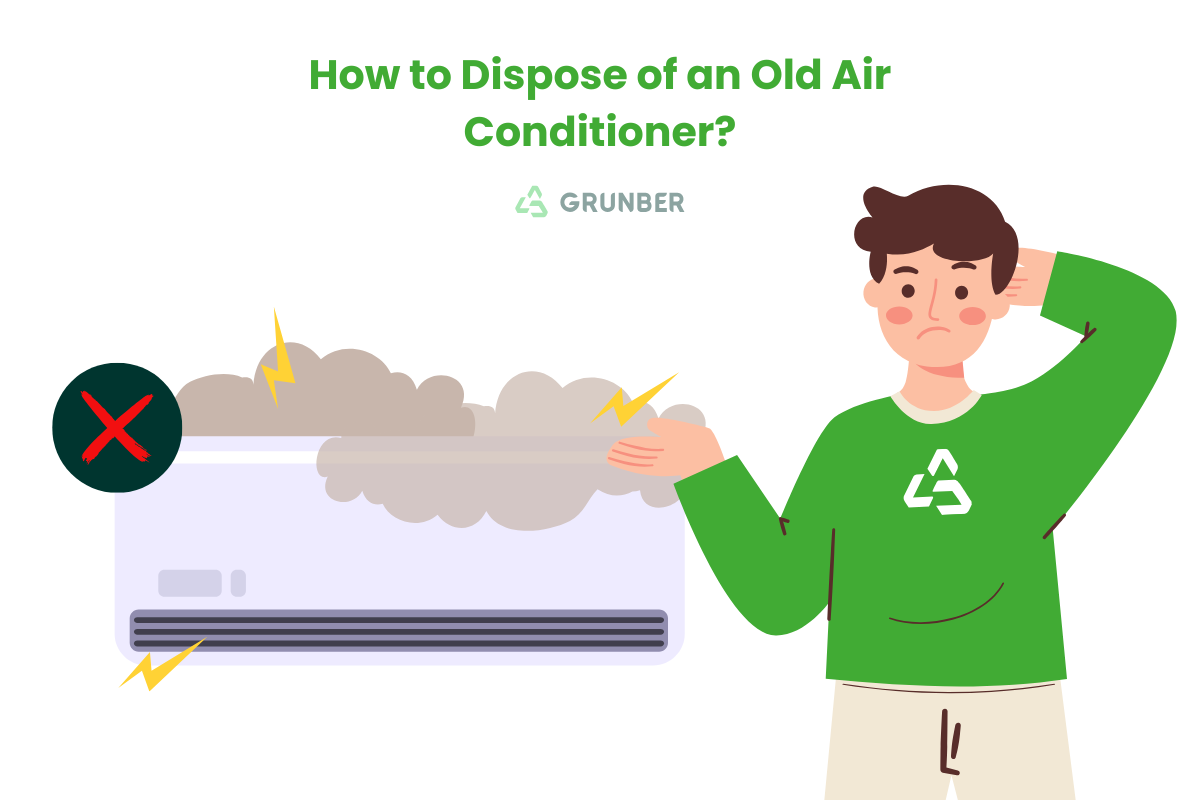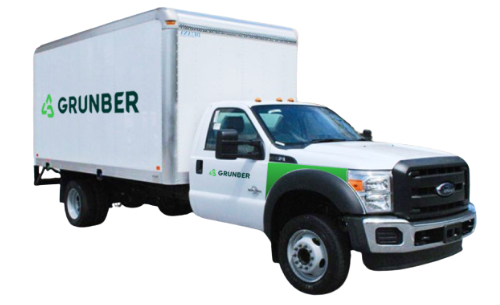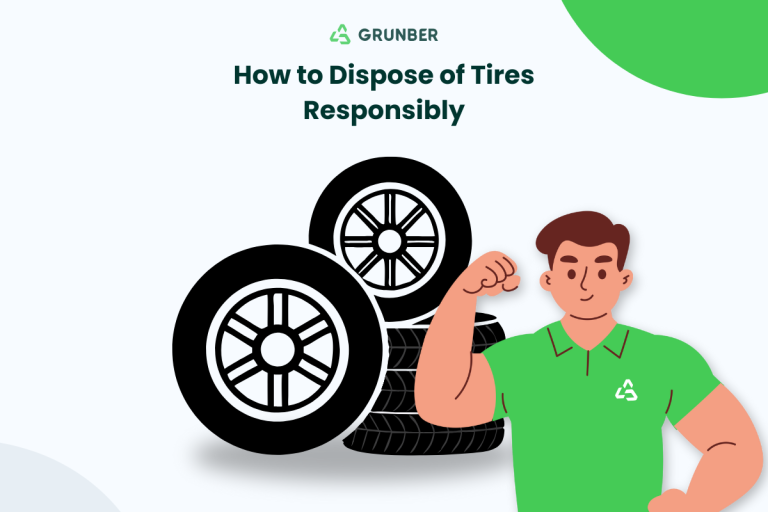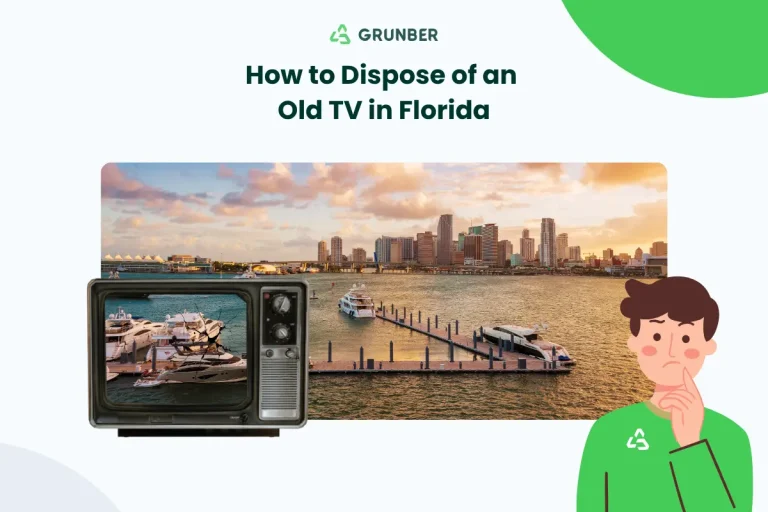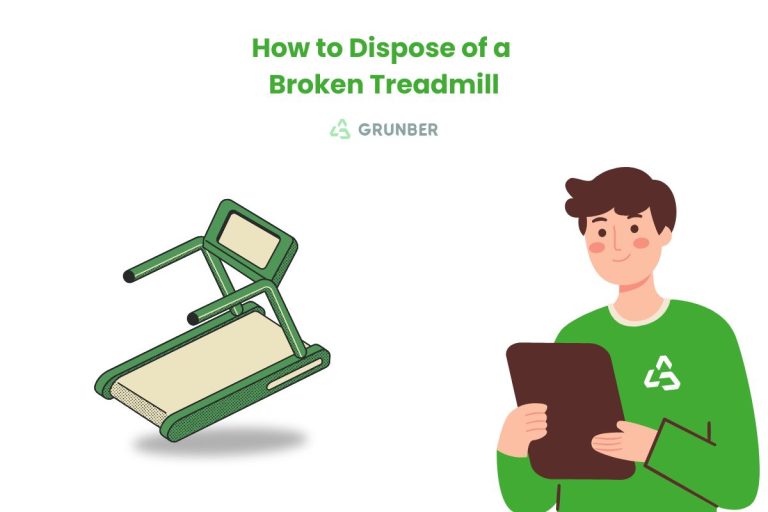You know that aging air conditioner rattling in your window frame, sounding like a rock band warming up out of tune? Yep, that one. It’s served you (and your sweaty summer evenings) well, but now it’s time to give it the final encore.
The trouble is, you can’t just sneak it into your neighbor’s dumpster at midnight and flee the scene. Why? Because air conditioners are basically tiny ecosystems of refrigerants and metals that need careful, law-abiding goodbyes. Lucky for you, Grunber has the backstage pass to proper (and painless) air conditioner disposal.
You may also be interested in:
Why You Can’t Just “Set It and Forget It”
Dumping an old AC unit into the garbage might feel like the easy way out, but trust us: it’s a recipe for environmental and legal mayhem.
Refrigerants (Like Freon or R-22)
These magical coolants are all fun and games until they leak into the atmosphere, harming the ozone layer or contributing to climate change. In many places—like Massachusetts or New York—there are strict regulations mandating that certified technicians remove refrigerants before you can even think about tossing the unit. Failure to comply can lead to hefty fines (and an angry planet).
Metal & Plastic Components
Old ACs aren’t biodegradable. Their metal frames and plastic shells can chill in a landfill for ages without so much as a goodbye. Luckily, recycling breathes new life into these materials—imagine your ancient AC turning into car parts or even futuristic art installations (hey, we can dream).
Legal & Safety Considerations
Many local governments require permits or special disposal methods for appliances containing refrigerants. For instance, certain cities in Massachusetts or Pennsylvania have bulky-item pickup days that won’t accept AC units unless the refrigerant has been evacuated. Some states impose fines if you’re caught ditching an AC on the curb without proper prep. Translation? Don’t skip the legal step.
Basically, how to dispose of an old air conditioner boils down to doing so responsibly—so neither the environment nor your wallet ends up drenched in regret. And if you’re ready to avoid the sweat and stress altogether, you’ve always got Grunber on speed-dial to handle the dirty work. Go forth, dispose responsibly, and let your home stay cool—legally and guilt-free.
Step 1: Investigate Your Local Regulations
Depending on where you live, disposing of big appliances like AC units might feel like deciphering an escape room puzzle. Relax, we’ve got some hints:
- Check City or County Websites
Most municipal waste departments have detailed guidelines on what to do with an old air conditioner. They’ll let you know if there’s a special pickup day or a local drop-off site. - See If You Need a Permit
Some locales demand a removal or recycling permit to ensure you’re not illegally dumping refrigerants. - Schedule a Bulk Pickup
Certain areas offer curbside bulk pickups for large appliances. Make sure you label your AC properly, and be aware they might require the refrigerant to be removed first.
A quick phone call or website visit saves you from potential fines—and from the dreaded “what now?” scenario.
Step 2: Decide If It’s Truly Beyond Repair
Before you sentence your air conditioner to the recycling pile, ask yourself: Could this old clunker still do someone else some good? or has it fully breathed its last breath?
Donate or Sell a Working Unit
- Online Marketplaces: Post it on sites like Craigslist, Facebook Marketplace, or OfferUp. You might find someone who needs a cheaper AC option.
- Local Charities: Some charities or community centers accept lightly used appliances, especially if they still run reasonably well. (Just be upfront about any quirks!)
Recycle or Deconstruct a Non-Working AC
- If your AC looks like it’s one fuse away from bursting into flames—or it’s an older model with known refrigerant leaks—recycling is the name of the game. We’ll explain how in the next steps.
Step 3: Safely Remove Refrigerants (Put Down the Screwdriver!)
Old air conditioners typically use refrigerants like Freon (R-22) or R-410A. Removing these chemicals isn’t a DIY project unless you happen to be a certified HVAC technician in your spare time.
- Hire a Professional Technician
A licensed pro can properly evacuate the refrigerant to prevent environmental harm (and legal headaches!). They’ll have the specialized equipment to capture the gases instead of letting them escape into the atmosphere. - Check Manufacturer or Store Take-Back Programs
Some retailers offer appliance trade-in or recycling programs. They may handle the refrigerant removal for you—often at a discounted cost if you’re purchasing a new unit. - Community E-Waste or Appliance Events
Local waste management agencies sometimes host special events where you can drop off large appliances to be safely dismantled by on-site technicians. Keep an eye on your city’s event calendar.
Step 4: Recycle the Metal and Plastic Components
Once that pesky refrigerant is out, you’re looking at a shell made primarily of metal, plastic, and some wiring—most of which can be recycled.
- Certified Recycling Centers: Many scrap yards or appliance recyclers pay a bit for metal parts. Even if you don’t rake in the big bucks, at least those materials see a second life.
- Municipal Transfer Stations: Some towns have designated transfer stations or waste facilities specifically for large appliances. A quick online search or phone call can confirm if they accept old AC units.
- Earth911.com or Local Directories: Need a recycling center nearby? Resources like Earth911 or local directories can point you to the right spot.
Step 5: Call Grunber (Save Yourself the Heavy Lifting)
Hauling an old air conditioner down a flight of stairs in the middle of summer is about as fun as wearing a wool sweater in a sauna. Why not let Grunber do the heavy lifting?
- We Handle All the Details:
From scheduling a pickup to navigating local regulations, we’ve got you covered—no sweat required on your end. Whether you’re in Boston or Worcester, our team takes care of everything so you can kick back and enjoy the cool breeze of your new AC.
- Eco-Friendly Disposal
Our goal is to salvage or recycle whatever we can. We work closely with certified facilities that specialize in safe refrigerant removal and responsible recycling, ensuring your old AC leaves behind a much smaller environmental footprint.
- Clear Out the Clutter
While we’re at it, feel free to toss in that ancient mini-fridge, defunct toaster, or the pile of cardboard boxes that’s turning your garage into a maze. Grunber helps you declutter in one fell swoop—no lugging, no stress, just a fresh start for you and your home.
Air Conditioner Disposal FAQs
1. Can I Throw My Old Air Conditioner in the Trash?
Most likely, no. Because of the refrigerants and metals, your local garbage collector will usually require special handling. Always check local regulations.
2. How Much Does It Cost to Remove Refrigerants?
The price varies by location and technician. Expect a service fee for handling ozone-depleting substances like Freon. Some areas offer free or discounted removal events.
3. Can I Take It Apart Myself and Recycle the Pieces?
Only if you’re a trained HVAC wizard. Removing and disposing of refrigerants on your own is unsafe (and illegal in many places) without the correct certifications.
4. Is There a Timeline for Replacing Old AC Units?
Older air conditioners can be far less energy-efficient. Upgrading sooner not only saves on your electricity bill but can also help the environment if you recycle the old unit responsibly.
5. How Long Does an Air Conditioner Take to Break Down in a Landfill?
The short answer: a really long time. Metals, plastics, and chemicals don’t break down easily. Recycling recovers most of those materials and spares the planet a major headache.


